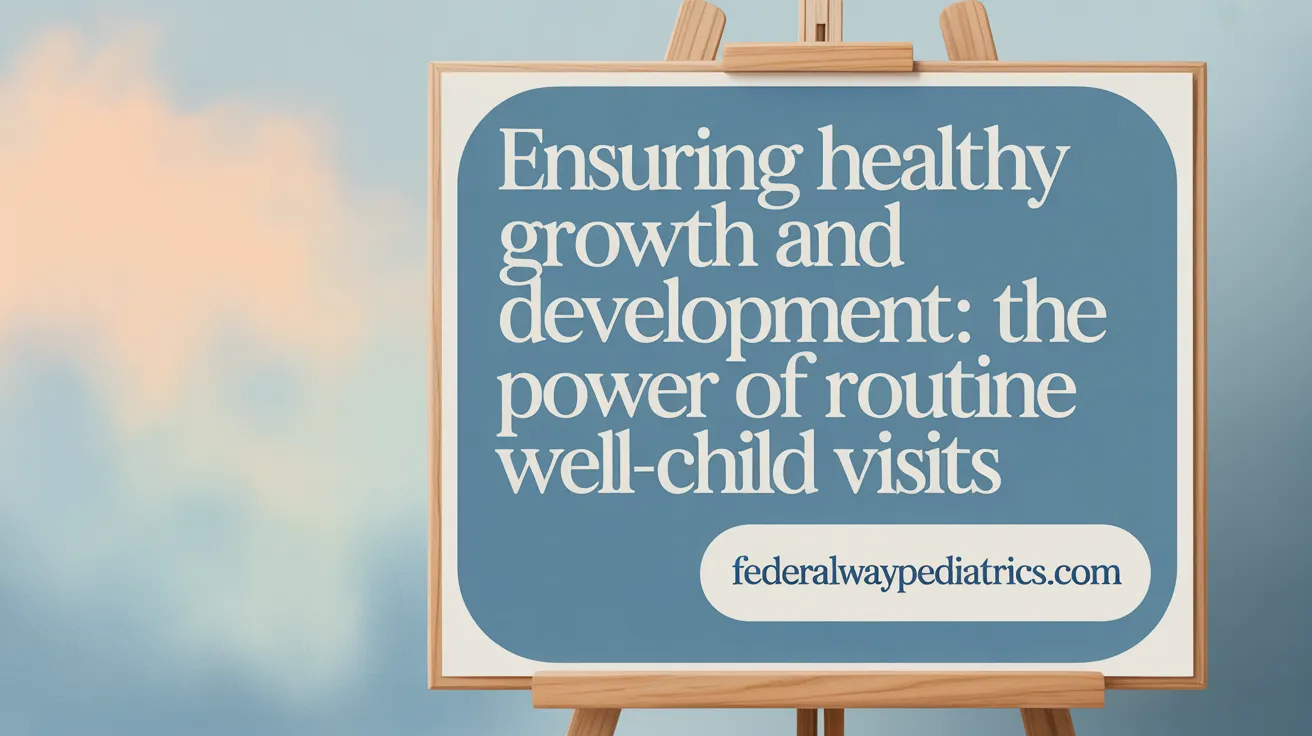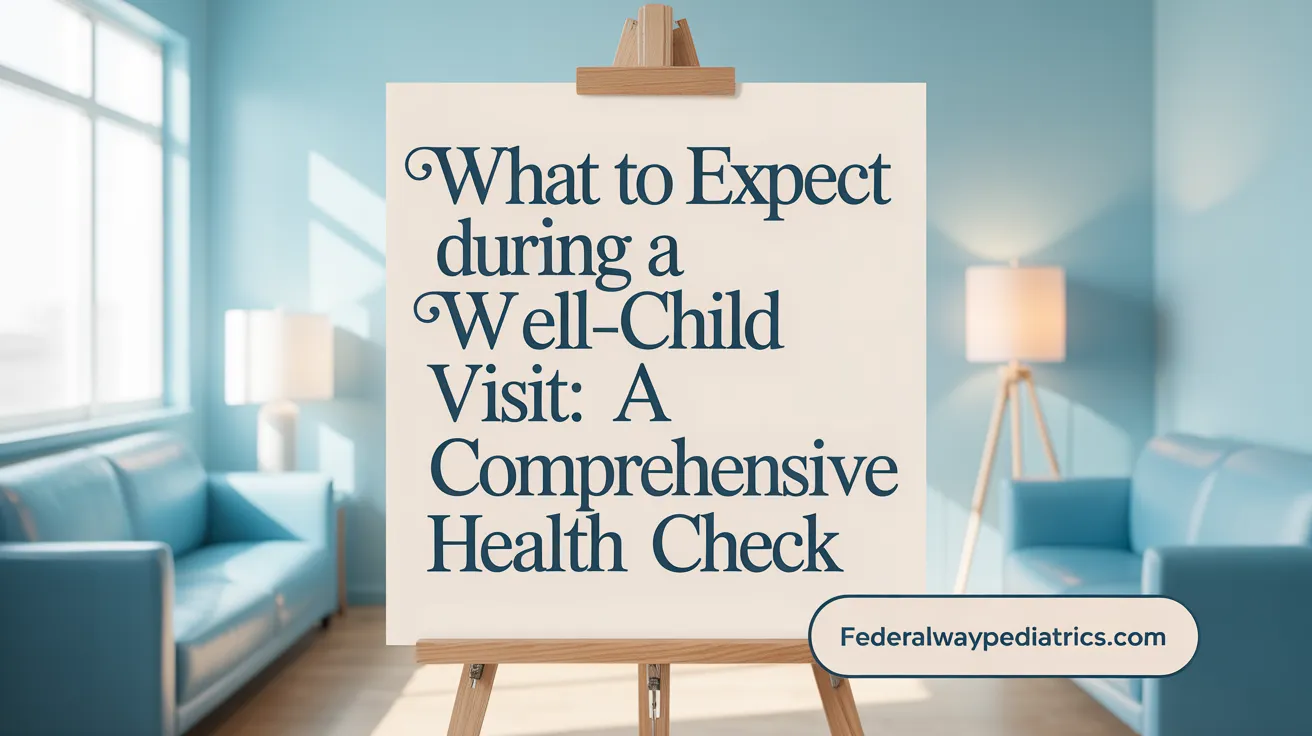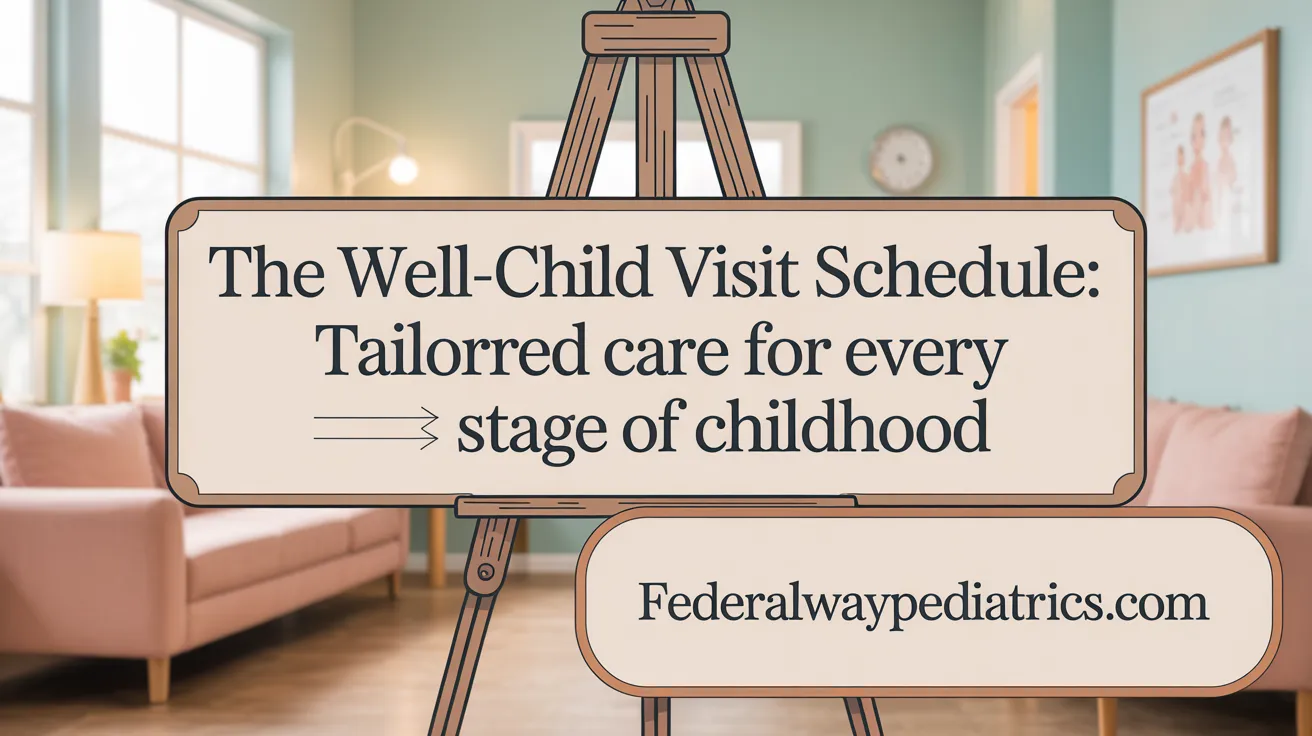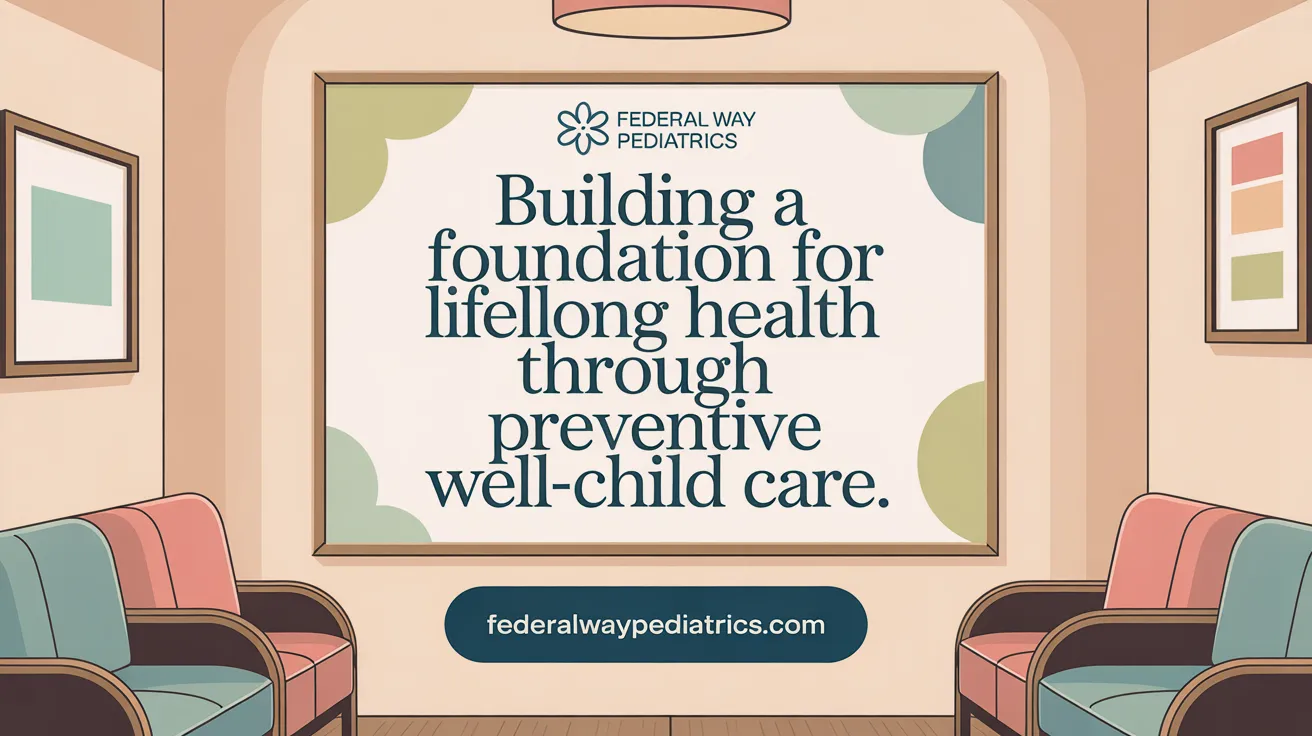The Cornerstone of Children’s Health and Development
Routine well-child visits are a fundamental aspect of pediatric healthcare that ensures children grow, develop, and thrive at every stage from infancy through adolescence. These visits provide crucial opportunities to monitor physical growth, track developmental milestones, administer preventive vaccines, and address any emerging health concerns early. This article explores the multifaceted importance of well-child visits and offers guidance on maximizing their benefits for your child’s long-term well-being.
Understanding the Importance of Well-Child Visits for Growth and Development

Why are routine well-child visits important for a child's health, growth, and development?
Routine well-child visits play a vital role in ensuring children grow up healthy and reach developmental milestones on time. These regular checkups allow pediatricians to monitor physical growth by measuring height, weight, and head circumference, and to track progress on growth charts. Early detection of developmental delays or health issues, such as vision or hearing problems, is a significant benefit.
During these visits, providers assess emotional and behavioral health, screening for conditions like autism or anxiety, and discuss social interactions and learning readiness. Age-specific developmental assessments help identify concerns early, enabling intervention to promote better outcomes.
Immunizations administered during well-visits protect against serious diseases like measles, polio, and HPV, safeguarding individual and community health. Open communication with healthcare providers allows parents to ask questions about sleep, diet, behavior, and safety, fostering a trusting relationship. This ongoing relationship promotes healthy habits, supports the child's holistic development, and ensures that problems are addressed promptly before they become more serious.
In summary, regular well-child visits are essential not only for health monitoring but also for nurturing emotional well-being and establishing a foundation for lifelong health and development. They ensure children thrive physically, emotionally, and socially, giving them the best start in life.
The Comprehensive Components of a Well-Child Visit

What are the typical components and procedures involved in a well-child visit?
A well-child visit is a comprehensive checkup designed to monitor a child's health, growth, and development. This routine appointment includes a variety of essential procedures to ensure early detection of health issues and promote optimal development.
First, the healthcare provider performs a thorough physical examination. During this exam, measurements of height, weight, and head circumference are taken and recorded on standardized growth charts. This allows tracking of growth patterns over time and helps identify any deviations from typical development.
Developmental and behavioral screenings are also a crucial part of the visit. These assessments evaluate milestones such as motor skills, language development, social interactions, and cognitive abilities. At specific ages, additional screenings like for autism spectrum disorder or behavioral concerns may be performed using standardized tools.
Screenings for vision and hearing are routinely conducted, often including vision tests suitable for the child's age and hearing assessments to catch early signs of impairments. In addition, laboratory screenings, such as tests for anemia, lead exposure, and sometimes blood tests for metabolic or neuromuscular concerns, are ordered based on the child's age, medical history, and risk factors.
Immunizations are administered according to recommended schedules, like those provided by the CDC’s Advisory Committee on Immunization Practices (ACIP). Vaccines such as the MMR, polio, influenza, and others are given to protect children from serious preventable diseases.
The visit also emphasizes health education and anticipatory guidance. Healthcare providers discuss topics relevant to the child's age, including safe sleep practices, nutrition, physical activity, safety measures, dental health, and behavioral health. They address parental concerns, offer advice on handling common health issues, and provide resources for further support.
Finally, age-specific assessments are performed, including checking for developmental delays, assessing social and emotional well-being, and tailoring health strategies to the child's current stage of growth. The comprehensive nature of well-child visits aims to ensure each child's physical, emotional, and social health are on track, fostering a foundation for lifelong wellness.
Recommended Schedule and Age-Specific Focus of Well-Child Visits
 The American Academy of Pediatrics (AAP Schedule of Well-Child Care Visits) has established a comprehensive periodicity schedule that guides well-child visits from infancy through adolescence. During the first year, children typically have frequent checkups—starting from 3-5 days after birth, then at 1 and 2 months, and subsequently at 4, 6, 9, and 12 months. These early visits are crucial for closely monitoring growth and development, immunizations, as well as screening for potential delays or health issues.
The American Academy of Pediatrics (AAP Schedule of Well-Child Care Visits) has established a comprehensive periodicity schedule that guides well-child visits from infancy through adolescence. During the first year, children typically have frequent checkups—starting from 3-5 days after birth, then at 1 and 2 months, and subsequently at 4, 6, 9, and 12 months. These early visits are crucial for closely monitoring growth and development, immunizations, as well as screening for potential delays or health issues.
After the first year, the schedule shifts to less frequent visits but remains consistent. At 15 and 18 months, additional assessments are performed. At age 2, and then at 2.½ years (30 months), parents and caregivers can expect evaluations that focus on developmental milestones and behavioral readiness. From age 3 to 21 years, annual visits are the norm, providing opportunities to update vaccinations, conduct screenings, and address age-specific health concerns.
Throughout childhood and adolescence, screenings are adapted to the child's age. For example, vision and hearing tests, anemia and lead checks are common in younger children, while mental health and behavioral assessments become more prominent during teenage years. These ages also mark when discussions about nutrition, safety, puberty, and mental health are prioritized.
Sticking to the recommended well-child visit schedule is vital. Regular well-child visits facilitate early detection of developmental delays, behavioral issues, or physical health problems. They also help ensure children remain up-to-date on vaccinations, preventing serious diseases and promoting long-term health. The consistent assessment across all ages fosters a healthy foundation for physical, emotional, and social development, making adherence to this schedule essential for optimal pediatric care.
Promoting Child Well-Being and Lifelong Health Through Preventive Care

How do well-child visits foster a child's overall health and future well-being?
Well-child visits are vital components of preventive healthcare, ensuring children receive consistent monitoring and early interventions that promote lifelong health. These routine appointments help track growth, developmental milestones, and emotional well-being, allowing healthcare providers to identify concerns early before they develop into more serious issues.
During these visits, children are up to date with essential vaccinations, which protect against diseases such as measles, polio, and HPV. Immunizations not only safeguard individual health but also contribute to herd immunity, reducing the risk of outbreaks within the community.
Healthcare professionals also perform screenings for vision, hearing, anemia, and developmental delays, enabling timely treatment and support. Regular assessments foster healthy behaviors by discussing safety, nutrition, sleep, and behavior, empowering families with knowledge and strategies for their child's growth.
Building a trusting relationship between families and pediatricians is another benefit, encouraging open communication about health concerns and lifestyle choices. This ongoing partnership helps tailor health advice to each child's needs and supports disease prevention.
However, barriers such as transportation difficulties, language differences, and social determinants of health can impede consistent attendance. Addressing these obstacles through community programs, language services, and flexible scheduling ensures more children receive the preventive care they need.
In summary, well-child visits lay the foundation for good health by combining medical screenings, vaccinations, health education, and relationship-building, all of which contribute to a child's immediate safety and long-term well-being.
| Aspect | What It Covers | Importance |
|---|---|---|
| Vaccinations | Immunizations against preventable diseases | Protects individual and community health |
| Screenings | Vision, hearing, developmental delays, anemia | Early detection and intervention |
| Health Education | Nutrition, sleep, safety, behavior | Promotes healthy habits |
| Relationship Building | Trust between families and providers | Improves communication and care |
| Overcoming Barriers | Transportation, language, social determinants | Ensures access for all children |
Making the Most of Well-Child Visits: Preparation and Expectations for Parents
 Preparing for your child's well-child visits is an important step toward ensuring they receive comprehensive health care. Parents should start by noting any recent changes in their child's behavior, sleep patterns, eating habits, or development. Writing down questions related to safety, nutrition, or behavioral concerns allows for easier discussion during the appointment.
Preparing for your child's well-child visits is an important step toward ensuring they receive comprehensive health care. Parents should start by noting any recent changes in their child's behavior, sleep patterns, eating habits, or development. Writing down questions related to safety, nutrition, or behavioral concerns allows for easier discussion during the appointment.
It's helpful to explain the purpose of the visit to your child in simple, age-appropriate language to make them more comfortable. For younger children, bringing familiar toys or comfort objects can ease anxiety.
Parents ought to bring vaccination records, recent health history, and any forms required by schools or daycares. Using tools like the MyChart app or keeping a health folder ensures all necessary documents are on hand.
During the appointment, expect a thorough physical exam. Healthcare providers will assess your child's growth by measuring height, weight, and head circumference, and conduct screenings for vision, hearing, and developmental milestones. Immunizations will be administered if they are due based on age schedules.
Topics such as nutrition, sleep, safety around water and roads, social interactions, and emotional well-being are common discussion points. Parents can bring up concerns about behavior, learning, or stress, and receive guidance tailored to their child's needs.
Supporting your child through vaccinations by explaining their importance and offering comfort during shots can help reduce fears. Follow-up care or referrals for further evaluation might be recommended based on the findings.
Ultimately, these visits build a trusting relationship with your healthcare provider, ensuring your child's ongoing health and well-being.
Building a Foundation for Lifelong Health
Routine well-child visits are indispensable for safeguarding your child's health, growth, and development. They provide a comprehensive framework for preventive care, early detection of health concerns, and nurturing the physical, emotional, and social well-being of children. By adhering to the recommended visit schedule and actively engaging with healthcare providers, parents can help establish healthy habits and ensure timely interventions that foster optimal outcomes. Addressing barriers to accessing care and preparing thoughtfully for each visit further enhances the efficacy of these essential appointments. Ultimately, well-child visits lay the groundwork for a healthier future, empowering children to flourish through every stage of life.
